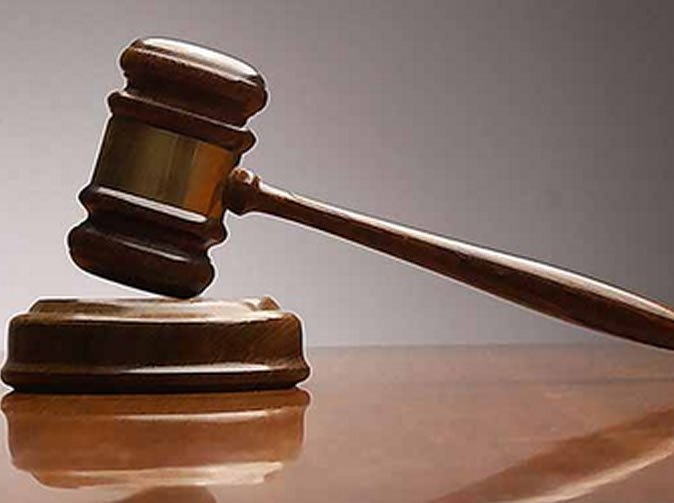From crowded cities to far-flung villages, women with unwanted pregnancies across West Africa are resorting to clandestine and unsafe abortions – driven by shame, stigma and restrictive laws.
Many pregnant women and girls in the region seek abortions from untrained practitioners in unhygienic surroundings or self-induce using desperate methods, ranging from drinking bleach to inserting glass, plant stalks or bicycle spokes into the vagina.
Abortion in West Africa, a region with some of the world’s highest fertility, unsafe abortion and maternal mortality rates, is largely illegal – some countries permit it only to save the woman’s life while others allow it in cases of rape or incest.
While the enforcement of abortion laws varies, from police harassment to imprisonment, the laws build upon the stigma of abortion and the sway of religion to scare pregnant women and stifle debate or reforms, experts say.
“Strict laws enable governments to ignore the issue of abortion by playing on fears of doing something illegal,” said Charlotte Hord Smith, policy director at advocacy group Ipas.
“On top of this, the stigma of abortion is so pervasive in West Africa that it tends to keep the issue from being freely discussed and addressed … but the bill in Sierra Leone has opened it up to public and political debate like never before.”
Sierra Leone’s president has twice refused to sign a bill in recent months which would make his country the first in West Africa to legalise abortion, instead calling for a referendum.
The proposed law, which would allow women to terminate a pregnancy in any circumstances up to 12 weeks or in cases of rape, incest or risk to the health of foetus up to 24 weeks, was unanimously passed by parliament in December.
But President Ernest Bai Koroma decided not to sign the bill into law after protests from Christian and Muslim leaders, and some activists fear the legislation may soon be shelved.
“Koroma missed a chance to take a step that would have led to significant improvement in women’s health,” Hord Smith told the Thomson Reuters Foundation.
LEGAL BURDEN
Nigeria and Ivory Coast are among the West African nations with the strictest laws on abortion, permitting it only to save a woman’s life, while pregnant women in Senegal must get three doctors to certify that the procedure is lifesaving.
While countries like Liberia and Ghana have more progressive laws, allowing abortion in cases of rape and incest, and to preserve a woman’s mental health, legislation has little impact on the likelihood of women having a legal abortion, experts say.
Fewer than one in 20 pregnant women in Ghana are aware of the abortion laws and almost half the abortions performed in the country are unsafe, according to the Guttmacher Institute.
Survivors of rape or incest who want a safe, legal abortion must first take several steps – such as obtaining a police report and the approval of a local judge.
The process is costly and can take many months, said Susan Sandars, policy advisor at international charity Marie Stopes.
“In the unlikely event that a woman goes through all of these steps, due to the trauma, stigma, and taboos around sexual violence, it would probably be far too late for a safe abortion.
“It places a burden on women to prove they have been victims of crime, when the focus should be on their rights and health.”
While infanticide and abortion account for a third of female prisoners in Senegal – women who terminate a pregnancy can be jailed for 10 years – fear of stigma means abortion laws are rarely enforced in other West African countries, activists say.
Abortion cases referred to the police in Sierra Leone are usually mediated and resolved by the families involved instead of being pursued in court, said Simitie Lavaly, executive director of AdvocAid, a legal organisation for women and girls.
“In Sierra Leone, abortion is seen as a family issue. People are afraid of stigma and news spreading around the community.”
People who perform abortions in Sierra Leone tend only to be prosecuted if a woman dies, Lavaly added.
MOMENTUM FOR CHANGE
More than 1.8 million unsafe abortions are performed each year in West Africa, accounting for one in 10 deaths of women during or just after childbirth – almost 10,000 maternal deaths per year – according to the World Health Organization (WHO).
Many women and girls in West Africa, the region with the world’s highest pregnancy rate for girls aged 15-19, fall pregnant amid poor sex education, taboos surrounding sex and limited access to contraception, activists say.
Sex education is often viewed with suspicion across Africa, and in 2014 the Niger government withdrew a course on sexual and reproductive health from the school syllabus after Islamic organisations said it was contrary to the country’s values.
Contraception use is slowly growing in West Africa, yet only one in 10 married women use it due to a lack of family planning services, opposition from partners or religious figures and the high cost, according to the Population Reference Bureau.
“Many young girls also become pregnant because they are left to fend for themselves and can only manage by having older boyfriends or giving sexual favours,” said Lavaly of AdvocAid.
While President Koroma’s refusal to sign the bill in Sierra Leone was seen as a setback for abortion rights in West Africa, activists say there are positive signs for reform in the future.
“West Africa has strong civil society support, a pan-African campaign to decriminalise abortion and momentum within countries to challenge and change the laws,” said Sandars of Marie Stopes.
“There is a growing recognition that laws do not stop women from seeking abortion, but drive them towards unsafe abortions.”
– Reporting By Kieran Guilbert, editing by Tim Pearce

